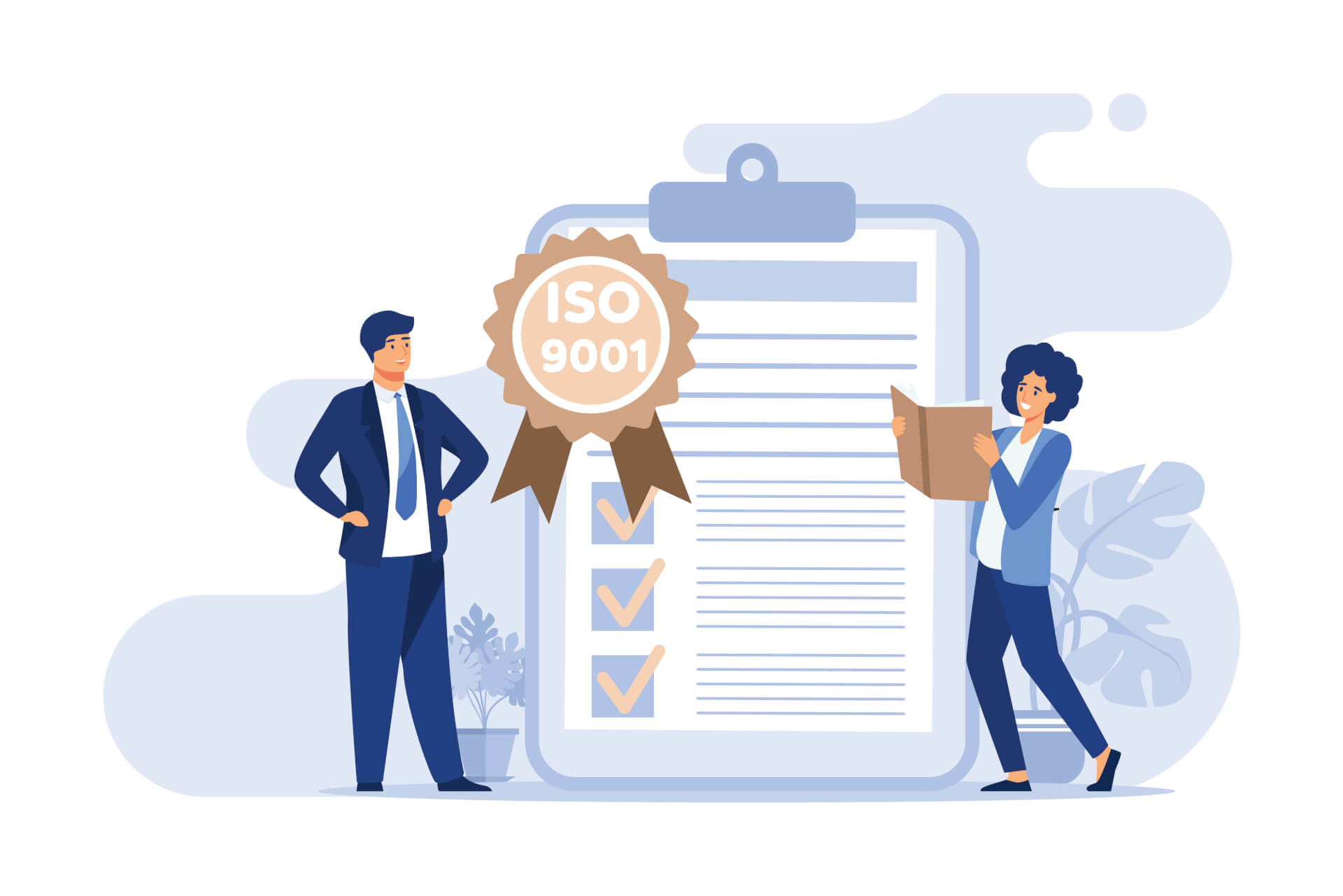Whether you offer a service or sell products, the ability to create a well-crafted and compelling offer can make all the difference in success.
In this guide we give you an overview of the most important points regarding the topic of preparing proposals.
 Here you will find out everything you need to know about writing proposals, from understanding the necessary components, writing tips, ideas for creating templates, as well as information about legal requirements or pitfalls that you need to be aware of when creating them Mastering the art of persuasion.
Here you will find out everything you need to know about writing proposals, from understanding the necessary components, writing tips, ideas for creating templates, as well as information about legal requirements or pitfalls that you need to be aware of when creating them Mastering the art of persuasion.
Table of Contents
What types of Proposals are there?
 Proposals come in many forms, each tailored to their specific purpose and sometimes very different in content and structure.
Proposals come in many forms, each tailored to their specific purpose and sometimes very different in content and structure.
Common forms of proposals include business and project proposals. The format and content of an offer can vary depending on the target group and goal.
These forms of offering can also be divided into categories, for example:
Standard offers
Consisting of a static service package, without individual adjustments or discounts.
Information offers
Also called right price offers. A temporary price or price range is specified, for example with the prefix “from…”.
An exact calculation will only be made as part of the inquiry.

Individual offers
These are special offers that are tailored around needs, requirements and special wishes.
Limited and permanent proposals
This category defines the “lifetime” of an offer, i.e. whether it is only valid for a limited period of time or is valid for an unlimited period of time.
Tender proposals
Applicants must adapt their offers to the specific requirements of the advertiser and adhere to the guidelines of the respective industry in the form, transmission and description of the award process.
Understand the structure and content of a Proposal
 Now you know a number of types of offers.
Now you know a number of types of offers.
However, before you jump straight into the process of writing your first proposal, it's important to understand the key components of a proposal and their role in effectively conveying your message.
The front page of the offer – the flagship
The front page is the first thing readers see when they open the proposal. It should give the reader an overview and tell you directly what your proposal is about.
Make sure that the front page of your offer contains the following components:
- Title of the offer
- Your name or the name of your organization,
- Name of the customer or company to which the offer is addressed.
- The date and validity of the offer.
The introduction – what is this about?
The introduction sets the stage for your proposal and describes the problem or opportunity it addresses.
It should capture the reader's attention and provide context for the rest of the document.
 Reading recommendation: Our blog article “Writing Compelling Proposal Introductions: A Guide” goes into more detail.
Reading recommendation: Our blog article “Writing Compelling Proposal Introductions: A Guide” goes into more detail.
Formulate goals – What the offer enables
Clearly defined goals are also essential for a successful proposal.
Create a separate section in the proposal where you list the customer's problem and explain how the current proposal solves it.
Summary – essential content of the offer
The summary provides a brief overview of the entire proposal and highlights its key points and objectives. It serves as a snapshot of the content and allows the reader to quickly grasp the essential content.
 Recommended reading: Our blog article “7 Steps to Creating Compelling Summaries in Your Proposals” shows you how to create summaries that resonate with your customers.
Recommended reading: Our blog article “7 Steps to Creating Compelling Summaries in Your Proposals” shows you how to create summaries that resonate with your customers.
Budget and term – financial framework and value proposition
A clearly defined budget is crucial for getting your offer approved.
In this section, you'll break down the costs associated with the project, such as:
- Personnel costs
- Material costs
- and other expenses.
Here you also define the further framework conditions
- Validity
- Duration
- Fulfillment
- Deployment
The conclusion
 Similar to the summary describing the customer's requirements, the conclusion covers the core points of the proposal and underlines its importance.
Similar to the summary describing the customer's requirements, the conclusion covers the core points of the proposal and underlines its importance.
It may also include a call-to-action or next steps for further consideration.
 Reading recommendation: If you would like to learn more about the structure of offers, read our blog article “How to structure proposals for maximum impact – a quick guide in 10 steps”
Reading recommendation: If you would like to learn more about the structure of offers, read our blog article “How to structure proposals for maximum impact – a quick guide in 10 steps”
Tips for writing successful proposals
 Creating a compelling offer requires more than just introducing your product or service.
Creating a compelling offer requires more than just introducing your product or service.
Here are some tips to help you make your offers successful:
Know your audience
In order to make your proposal effective and successful, it is important to understand the needs, interests and preferences of your target group.
Therefore, always adapt your offer to the needs and wishes of the recipient.
 Recommended reading: In our blog article you will find “5 compelling reasons why personalization is crucial for the success of a proposal."
Recommended reading: In our blog article you will find “5 compelling reasons why personalization is crucial for the success of a proposal."
Define the problem clearly and comprehensibly
Identify the problem or opportunity your offer addresses and articulate its significance.
Providing context and background information helps the reader understand your proposal.
Formulate your solution approach
Present a clear and actionable solution to the problem at hand. Describe how your proposed project or initiative addresses the identified problems and delivers tangible benefits.
Highlight the benefits
Emphasize the potential benefits and outcomes associated with accepting your offer.
Whether it's greater efficiency, cost savings or improved results:
- Communicate the value proposition clearly to your audience.
 Reading recommendation: You can find out more about USP in offers in our blog article “Why it is important to highlight unique selling points in proposals”
Reading recommendation: You can find out more about USP in offers in our blog article “Why it is important to highlight unique selling points in proposals”
Always write clearly and concisely
Avoid unnecessary jargon, technical terms, or excessive details that could overwhelm or confuse the reader.
Keep your language simple, appropriate, direct and easy to understand.
 Recommended reading: Our blog article answers the question: “Why is simplicity so important when creating proposals?”
Recommended reading: Our blog article answers the question: “Why is simplicity so important when creating proposals?”
Proofreading and editing
- Before finalizing your proposal, review and revise it thoroughly for clarity, consistency, completeness and accuracy.
- Check for spelling, grammatical, and formatting errors to ensure a polished final product that impresses the reader.
 Recommended reading: "Improve your proposals with these professional writing tips - Creating successful business documents"
Recommended reading: "Improve your proposals with these professional writing tips - Creating successful business documents"
Mandatory information in your proposals – What should not be missing under any circumstances.

Basic requirements
Proposals must comply with the legal requirements of the industry and the jurisdiction in which they operate.
Failure to comply with these requirements may result in legal consequences and reputational damage.
Mandatory components of a proposal.
The following information is typically included in offers:
- Contact information
- Problem statement
- Suggested solution
- Summary
- Budget and financial details
- Schedule for implementation
- Evaluation criteria
- Terms and Conditions
 Reading recommendation: In our blog article we list “The top 5 features that every offer should have.”
Reading recommendation: In our blog article we list “The top 5 features that every offer should have.”
Legal requirements for proposals

Compliance
Proposals must comply with relevant laws and regulations, such as consumer protection laws, data protection regulations and anti-discrimination laws.
Compliance shows integrity and professionalism.
Disclosure of Information
Applicants are often required to disclose certain information, such as conflicts of interest, financial disclosures, and past performance.
Full transparency creates trust and credibility.
Intellectual property protection
Offerings may contain proprietary information or intellectual property that must be protected.
Measures such as non-disclosure agreements (NDAs) and copyright notices protect against unauthorized use or disclosure.
 Reading recommendation: If you would like to learn more about the legal requirements for binding offers, read our blog article "How to create binding proposals - A 5-step guide"
Reading recommendation: If you would like to learn more about the legal requirements for binding offers, read our blog article "How to create binding proposals - A 5-step guide"
Ensuring compliance
Conduct thorough research
Before developing a proposal, it is important to research the relevant laws, regulations and industry standards to ensure compliance.
Ignorance of legal requirements is not a valid excuse for non-compliance.
If necessary, seek legal advice
If you are unsure about specific legal requirements or implications, it is advisable to seek advice from legal experts who specialize in contract law or relevant areas.
Legal expertise can prevent costly mistakes.
Review and revision of offers
Carefully reviewing offers before submission helps identify potential legal issues or omissions.
Revising and refining the proposal will ensure clarity, accuracy and compliance with legal requirements.
 Reading recommendation: You can find more information on the subject of compliance in our blog article "What are key components to achieve compliance of proposals? 7 ways to success."
Reading recommendation: You can find more information on the subject of compliance in our blog article "What are key components to achieve compliance of proposals? 7 ways to success."
Pitfalls and other mistakes to avoid when preparing a Proposal
 When writing proposals, it's important to avoid common pitfalls that can reduce their effectiveness.
When writing proposals, it's important to avoid common pitfalls that can reduce their effectiveness.
Here are some common mistakes to avoid:
Lack of research
Failure to conduct thorough research or collect sufficient data can weaken the credibility of your offer.
Invest time and effort in gathering relevant information to support your arguments and recommendations.
Unclear goals
Vague or ambiguous goals can cause reader confusion about the purpose and intent of your proposal. Therefore, always make sure to be specific and precise when defining your goals in order to avoid misunderstandings.
Budgeting ignored
Failure to create a detailed and realistic budget may raise doubts about the viability and sustainability of your offer.
Pay careful attention to budgeting and financial planning to ensure your offer is financially viable for the reader.
Neglecting proofreading
Ignoring the importance of proofreading and editing may result in errors or inconsistencies that affect the professionalism and credibility of your proposal.
Take the time to carefully review your proposal before submitting it.
 Reading recommendation: Our blog article covers “The 10 most common mistakes when creating a proposal.”
Reading recommendation: Our blog article covers “The 10 most common mistakes when creating a proposal.”
Summary
 Creating, writing, and optimizing effective proposals is a skill that can open doors to new opportunities and drive the success of various ventures.
Creating, writing, and optimizing effective proposals is a skill that can open doors to new opportunities and drive the success of various ventures.
By understanding the importance of the important parts of an offer, following best practices when creating it, and avoiding common mistakes, you can create compelling offers that captivate your audience and achieve your goals.
We hope that this article has given you a good insight into the creation of offers.
Are you dealing with the topic of writing proposals and would like to delve deeper into the subject? In our blog you will find a range of information, templates as well as tips and tricks relating to proposal management.


